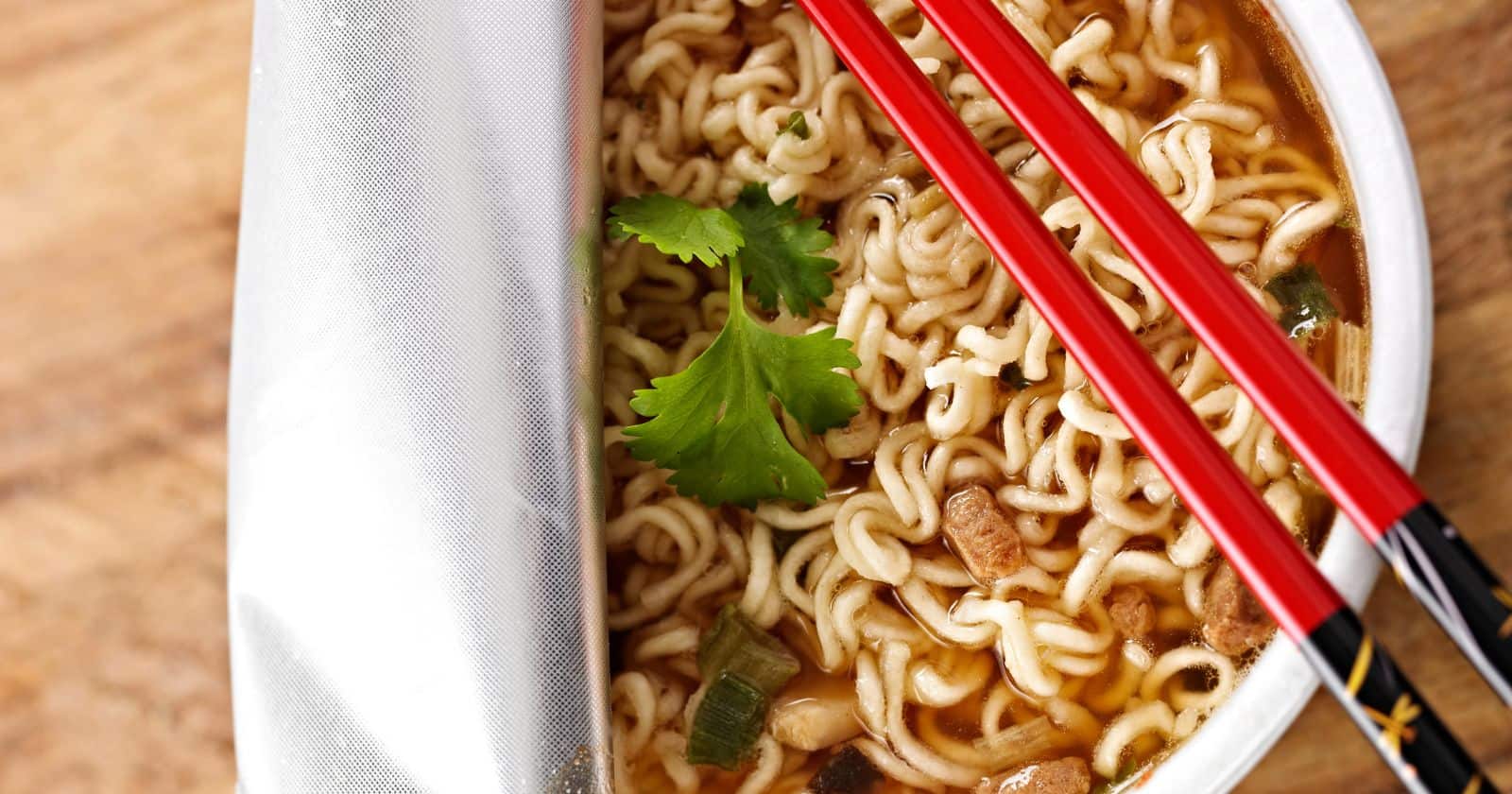Ramen noodles are a pantry staple for many. With their convenience, customizable flavors, and budget-friendly price point, it’s no wonder why ramen is a go-to meal for so many people. But if you don’t finish the whole package in one sitting, how long will leftover ramen last in the fridge?
Key Points on Fridge Life of Ramen:
- Uncooked ramen can last 1-2 years past the expiration date if unopened. However, for best quality and texture, use ramen packs within 6 months of the expiration date.
- Once opened, uncooked ramen noodles will last 1-2 weeks in the fridge. Make sure to seal the package tightly.
- Cooked ramen will last 3-5 days in a sealed container in the fridge. Eat within this window for best flavor and to prevent spoilage.
- Factors like ingredients, noodle thickness, and storage conditions affect how long ramen lasts. Use your judgment along with refrigeration times.
- Don’t freeze cooked ramen – the noodles become soggy once thawed. Freeze uncooked ramen instead.
Proper Storage for Cooked Ramen
To get the most mileage from cooked ramen noodles, proper storage is key. Here are some tips:
- Allow noodles to cool completely before refrigerating.
- Transfer to airtight, glass storage containers. Plastic can absorb odors.
- Ensure broth totally covers noodles to prevent drying out.
- Refrigerate within 2 hours of cooking.
- Use within 3-5 days for peak freshness.
- Freeze for longer storage.
Keeping noodles submerged in broth protects texture and locks in moisture. An airtight seal contains flavors and prevents contamination.
How Can You Tell When Ramen Goes Bad?
Cooked ramen lasts 3-5 days in the fridge at maximum quality. But how do you know when it’s past its prime? Watch for these signs:
- Slimy noodle texture
- Sour or funky aromas
- Mold growth
- Discoloration
- Dried out, cracked noodles
If you notice any of the above, it’s best to discard the batch. Consuming spoiled ramen can cause foodborne illness.
When stored properly in an airtight container, ramen can stay fresh for the duration of its fridge life. Trust your senses to determine safety.
Exact Shelf Life of Cooked Ramen in the Fridge
So exactly how long will cooked ramen last in the refrigerator? Here’s a breakdown:
- 1-2 days: Peak quality
- 3-5 days: Still edible but quality declines
- 5-7 days: Use cautiously if stored optimally
- Over 7 days: Risk of spoilage; discard
For maximum freshness, aim to enjoy leftovers within 1-3 days. Freezing extends shelf life significantly.
Shelf life varies based on ingredients. Ramen with fresh garnishes like greens may spoil faster. Simpler bowls with just noodles and broth keep a little longer.
Reheating Leftover Noodles
To revive leftover ramen’s texture and flavor, use these reheating methods:
- Stovetop: Gentle reheating in a pan with a splash of broth prevents overcooking.
- Microwave: Use a low power setting and heat in 30 second increments. Add water to prevent drying out.
- Oven: Bake chilled ramen in a casserole dish with extra broth at 300°F until warmed through.
- Hot pot: Submerge ramen in simmering broth for gentle, even reheating.
- Add fresh garnishes: Top revived noodles with proteins, greens, eggs, etc.
Proper reheating keeps noodles from turning mushy or dried out. Handle them gently and add extras to restore that just-cooked taste.
Freezing Cooked Ramen for Extended Storage
For maximum shelf life, freeze leftover ramen:
- Allow to cool completely before freezing.
- Portion noodles and broth into airtight freezer bags or containers.
- Lay bags flat in the freezer to quick-freeze contents.
- Once solid, stack bags vertically to save space.
- Label bags with date and contents.
- Frozen ramen keeps for 2-3 months.
Thaw in the refrigerator before reheating to prevent texture changes from thawing at room temp.
Storing Uncooked Ramen Safely
Uncooked ramen also requires proper storage. Follow these tips:
- Store packages in a cool, dry pantry away from heat, moisture and sunlight.
- Seal packages tightly or transfer noodles to airtight containers.
- Discard any noodles that smell rancid or show moisture damage.
- Write the purchase date on packages and use within expiration.
- For optimal quality, use unopened ramen within 1-2 years.
With the right conditions, dried noodles can stay fresh for the long haul. Refrigeration isn’t needed until after opening.
Key Takeaways
To enjoy cooked ramen to the last drop without wasting a single noodle:
- Refrigerate within 2 hours in airtight containers fully submerged in broth.
- Look for soggy texture, smell, and mold to identify spoilage.
- Plan to enjoy leftovers within 3-5 days before quality declines.
- Revive texture and flavor by reheating gently on the stovetop.
- Freeze for long-term storage up to 2-3 months.
With proper care and storage, cooked ramen can be a quick and delicious meal even throughout the week. Just remember the storage fundamentals of time, temperature and moisture control.
Now that you know how long cooked ramen lasts, you can slurp those noodles to the last drop without a worry. So grab your chopsticks and enjoy!





